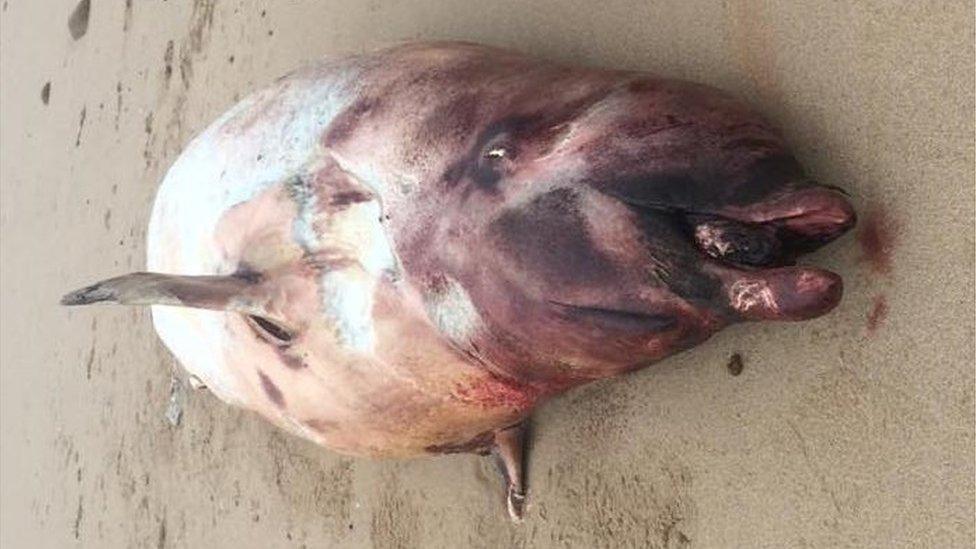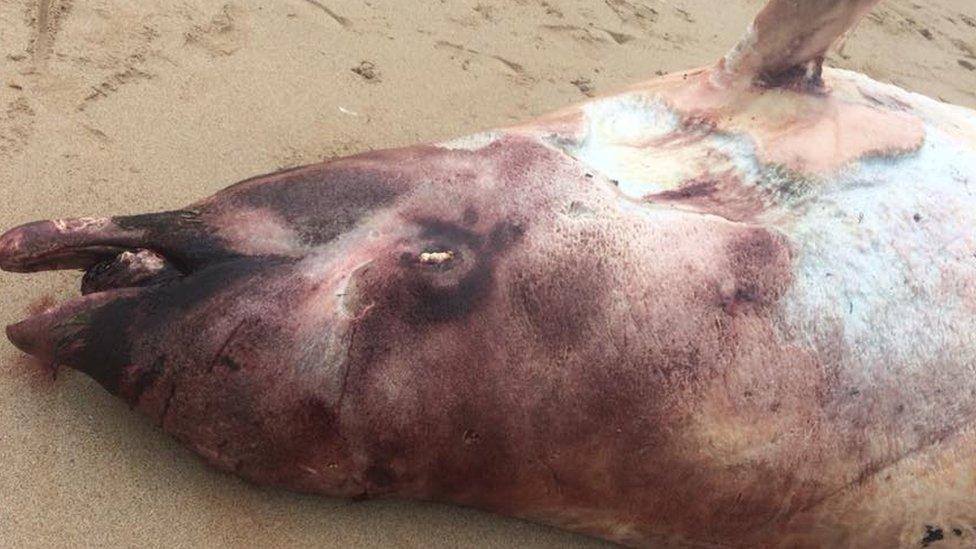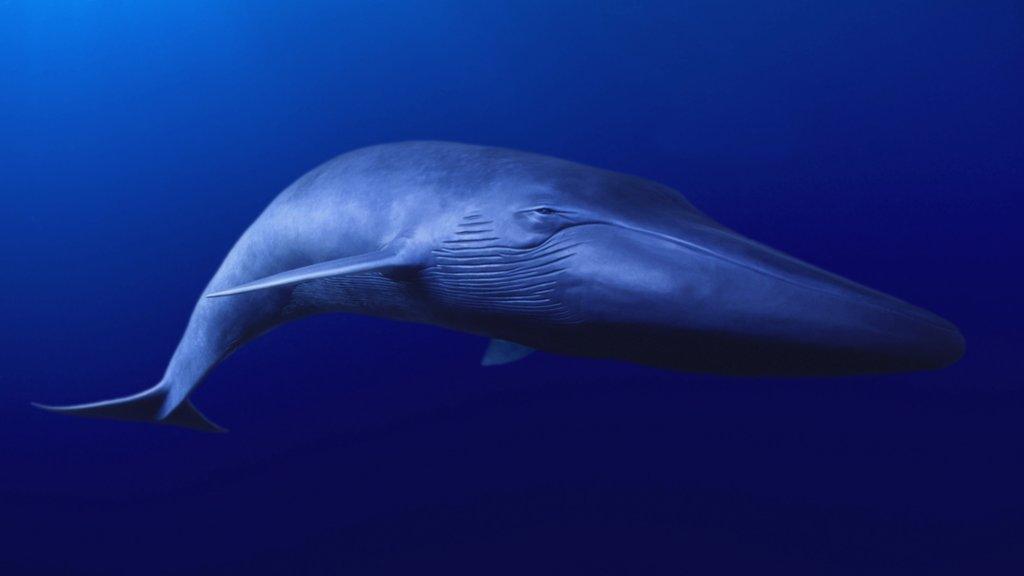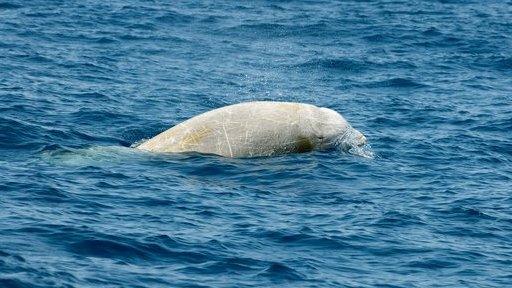Irish whale deaths may have been caused by sonar
- Published

The discovery of five beaked whales in a single day has been described as 'highly unusual'
The deaths of five whales found along Ireland's west coast may have been caused by naval sonar, an expert has said.
Dr Simon Berrow, of the Irish Whale and Dolphin Group, said the Cuvier's beaked whales' deaths were "highly unusual".
Three of the whales washed ashore in County Donegal on 4 August while another was discovered 12 miles off shore.
A beaked whale was also discovered in County Mayo on the same day.
Dr Berrow said usually about three strandings of beaked whales were reported in Ireland every year.
"To have this number in a single day is certainly highly unusual," he told BBC News NI.
"Typically, incidents of this kind are associated with acoustic trauma linked to active sonar," he added.
Dr Berrow said the whales were in "a very poor condition" when discovered. He said as the deepest diving whales species beaked whales are especially susceptible to sonar activity connected to military activity.

One of the whales was discovered on Gola Island off the coast of Donegal
He said they appeared to have been dead for more than a week and it is likely all five whales shared the same cause of death.
The Irish Navy do not have sonar capabilities but the Royal Navy do, said Dr Berrow.
"When investigating these type of incidents, establishing if there has been sonar use is always the first port of call," he added.
"There is an exercise military zone to the west of Scotland, west of the outer Hebrides. If this event occurred in British waters, which it could easily have done, then these animals drifted towards the Irish coast."
Research suggests the use of sonar for naval communication can disturb the behaviour of blue and beaked whales.
A spokesperson for the Royal Navy said: "There is no evidence that the deaths of these marine mammals have been attributed to any Royal Navy Sonar operations, trials or exercises.
"We take our environmental responsibilities very seriously and continue to work with the relevant UK authorities to reduce any environmental risk."
- Published3 July 2013

- Published26 March 2014
